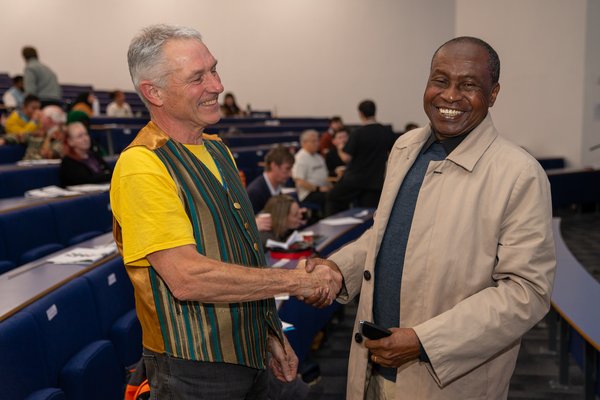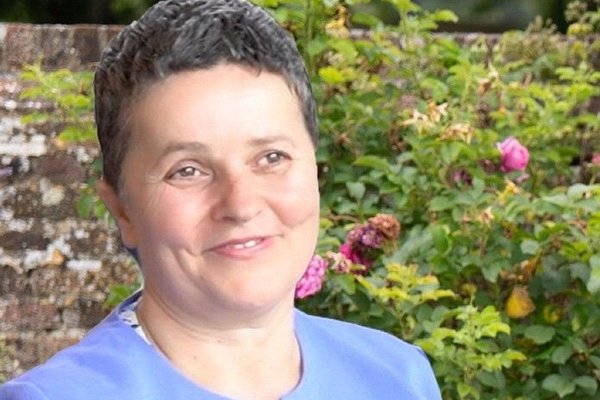Frequently asked questions
Frequently asked questions
Citizens UK is a people power alliance of diverse local communities working together for the common good.
Using Community Organising, our mission is to develop local leaders, strengthen local organisations which are the lifeblood of their communities, and make change.
Our members consist of 450 civil society institutions, including schools, faith/community groups, trade unions and parent groups. We often get asked questions about community organising, or the way Citizens UK works.
Read our FAQ below.

Click the + symbol below to find out more.
An accountability assembly is a celebration of the power that civil society can build. They are amongst the most dynamic and exciting people-led political events in the country, raising up people who often do not have a platform of their own. It is this platform that enabled low-waged cleaners to make a real Living Wage a mainstream idea.
Accountability assemblies are often attended in the hundreds or in the thousands of people, many of whom will have been involved in the process to create an agenda for change. This agenda is derived after a democratic process following a listening campaign. Community leaders from our member institutions chair these events and set the agenda beforehand. These assemblies give our members a platform and an opportunity to win commitments from decision-makers, building relationships with them on specific asks from our agenda. These are private events for our member institutions and invited guests.
Sometimes accountability assemblies are run during national, regional and local elections, where we develop and present our own manifesto to electoral candidates. We view elections as opportunities for civil society to build its own platforms.
Our accountability assemblies provide a platform that enables grassroots communities and local leaders to develop their voices and come together with the power and strategy needed to make real change. We believe politics is simply far too important to be left to just the politicians. We organise so that many more have the opportunity to lead. This includes marginalised groups and those who are not able to vote because of their age or immigration status.
As supporters of democracy, it’s exciting to see multiple political parties. We recognise and celebrate those who decide to enter public life and run for public office. But the truth is, not everyone has the privilege to run for political office.
Civil society organising accountability assemblies has won change at the national, regional and local level.
In the 2010 General Election, our accountability assembly helped to make a real Living Wage a mainstream idea - we set up the Living Wage Foundation the following year. In 2016, Nottinghamshire police force agreed to treat misogyny as a hate crime. In 2018, the Hackney Council agreed to support community sponsorship of refugees.
All of this was possible because organised civil society built our own platform - the accountability assembly. Building our own platform enables us to make mountains out of molehills, ensuring those who are often marginalised can be leaders, with the support of hundreds or thousands of people behind them, and make real change.
No. Citizens UK is a charity. We are non-partisan and that means we don’t endorse any political party. We have a vision of an organised, healthy civil society holding the state and the market to account. We take our non-partisan role in British democracy seriously. To endorse any political candidates would damage our ability to hold politicians to account as a non-partisan organisation.
Citizens UK is organised into place-based alliances, each led by a Leadership Team.
Each Leadership Team is made up of community leaders from across the membership of local civil society institutions. It is a representative group of community leaders who make strategic decisions on behalf of the alliance, working with professional community organisers. The leadership team has the power to set impartiality criteria for candidates that we invite to accountability assemblies during elections. They often refer to the performance of political parties and their candidates by polling or relevant historical data.
For 2021’s London Mayoral election, we commissioned a London Citizens leadership team. They set an impartiality criteria that has invited the two highest polling candidates for the next Mayor of London. This was determined by YouGov’s polling data in November 2020, which has been confirmed by subsequent polls. We have confirmed that this criteria is impartial and meets guidance from the Charity Commission and Electoral Commission.
The leadership team decided to limit the assembly to two candidates, as the more electoral candidates present at the assembly, the less time is given to voices of civil society and the voices of people with direct experience of injustice. These are the people our platform is created for.
No. Our accountability assemblies are not hustings. Hustings are open to the general public where attendees ask questions from the floor. We recognise the important role that hustings have to play in our democratic culture.
However, our accountability assemblies are private events for our member institutions and invited guests.
There are no spontaneous questions from the floor as our democratic processes are already complete. Through community organising, our agendas have been developed in the previous months or years leading up to the assembly. They include issues that have won consensus from our member institutions and that they have been working on with us. Our agendas are then ratified at a delegates assembly, then presented to relevant politicians, political candidates, business leaders and other decision-makers. During elections, accountability assemblies function as platforms for us as community leaders to secure public commitments from invited candidates on our agenda for the benefit of our communities.
Electoral candidates that are invited must meet impartial criteria, set by a Leadership Team of community leaders. Please read the above section “What is a Leadership Team… and why do they often decide to only invite a limited number of candidates?” for more information.
We have been running accountability assemblies for elections like this since 2000. We also liaise with the Charity Commission and the Electoral Commission, ensuring we remain fully compliant with charity and electoral rules.
No. Through accountability assemblies we often seek to hold other non-political decision-makers to account, presenting an agenda for change and securing commitments for the benefit of our communities. This has included the NHS, the police, and businesses.
Citizens UK is a non-partisan organisation, with a vision of an organised, healthy civil society holding the state and the market to account. Engaging in a non-partisan manner means we want to seek public relationships and commitments with whoever has power over the issues we care about.
Many participation organisations and researchers use ‘citizens assemblies’. These are used to “deliberate on an issue or issues of local or national or international importance”. We welcome new ways to increase participation in our democracy.
A Citizens UK accountability assembly is different. An agenda for change is developed and ratified through a process of listening campaigns, issues workshops and delegates assembly, with participation, leadership and collaboration by our member institutions. By the stage of the accountability assembly, our agenda is already set. Accountability assemblies are about securing public commitments from politicians, business leaders and other decision-makers on a ratified agenda we craft for the benefit of our communities.
Put simply, a citizens assembly is about making deliberations about policy, but an accountability assembly is about securing commitments on policy from relevant decision-makers - as the agenda has already been agreed and ratified.
This is a typical format for an accountability assembly.
The event is chaired by 2-4 community leaders from member institutions. They work with a professional community organiser(s) to set a timed schedule for the event. Each section is often timed to the exact minute.
Typically, the assembly starts with a roll call. This is a celebration of our member institutions. Our member institutions pay an annual subscription called “membership dues”. This unrestricted funding provides alliances with the freedom to act upon issues they care about, independent of the priorities of potential funders.
There is a performance of music, drama or dance from member institutions.
Then each campaign team makes a scripted presentation on the issue. This will include personal testimony from someone affected by the issue, their story highlighting why this issue is important. The campaign team will then present “asks” that will have a positive impact on the presented issue. These asks will have been developed and ratified at previous events by community leaders from our member institutions.
A decision-maker is brought to the stage and asked if they commit to delivering these asks. The assembly will have a public negotiation team to celebrate or seek clarification on the decision-maker's response. Each section is often timed to the minute, with a timekeeper interrupting if they have gone over time.
This structured format allows for a high number of people that speak publicly, usually in the dozens. Often, this will be people’s first experience of public speaking - with many participants from groups underrepresented in public life. This format allows people’s stories to enable real change, turning private grief into collective action, developing the capacity of people to lead.
Everyone you see speaking at an accountability assembly will be either a community leader or a decision-maker we are relating to. Professional community organisers do not have speaking roles, but work closely with the assembly’s chairpeople to coordinate and support strategy and logistics, and with member institutions on turnout of attendees.
Read more about our work
-
 Highlighting community voices at the Convention of the North fringe event
Highlighting community voices at the Convention of the North fringe eventOn 26th February 2025 at the University of Central Lancashire, Citizens UK held its first-ever fringe event ahead of the 2025 Convention of the North.
Read more -

-





